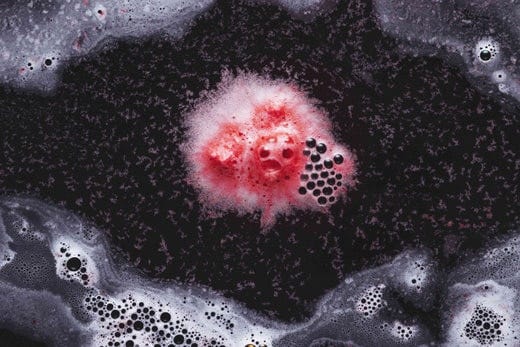
Preventing Mold and Bacteria Growth in Your Dishwasher

You might think your dishwasher is clean because it gets cleaned with the dishes every time you use it, but this is far from true.
While this appliance conveniently washes your dirty dishes and saves you time, what you might not know is that it can actually be a haven for mold and bacteria to live and grow in.
That’s right! Most households provide ideal environments for mold and bacteria growth, especially in moist, dark areas like the refrigerator and the dishwasher.
The humidity and potential for leaking water in these areas create a perfect habitat for unwanted mold and bacteria to live in.
Learn the best ways to prevent mold and bacteria growth in your dishwasher so your dishes come out clean, sparkling, and sanitized after every cycle.
What causes mold and bacteria in dishwashers?
Understanding why mold and bacteria breed in the dishwasher can help you better tackle the issue and keep your appliance mold—and bacteria-free.
The warm, moist conditions inside the dishwasher, coupled with food particles and grease, create a perfect environment for mold and bacteria to grow.
Mold and bacteria can grow in your dishwasher, and the minerals in the hard water can also contribute to buildup unless you are using Finish Dishwasher Salt to reduce the hard water’s mineral content and prevent limescale buildup.
When water evaporates during the drying cycle, it leaves behind mineral deposits known as limescale. This can clog spray arms, affect water circulation, and reduce the overall effectiveness of your dishwasher.
But you might be wondering, do the high dishwasher temperatures and high-quality dishwasher detergents eliminate unwanted mold? Unfortunately, mold can survive the entire dishwasher cycle.
How to clean mold and bacteria from your dishwasher?
Now that you're aware of the presence of unwelcome guests in your dishwasher, it's time to address the issue. To tackle mold in the dishwasher effectively, you should concentrate on three key actions: disinfecting, cleaning, and improving ventilation.
After that, it is time to clean your dishwasher with a vinegar-based solution. Simply fill a dishwasher-safe bowl with one cup of distilled white vinegar and place it on the top rack. Then, run a hot and heavy cycle without detergent or dishes.
After running the vinegar cycle, sprinkle a cup of baking soda in the bottom of the empty dishwasher and run a short or quick cycle.
Once you have finished cleaning out your dishwasher, you can put vinegar into a spray bottle and spray the inside or place a full cup of vinegar on the top rack of the dishwasher and run through a regular cycle.
Once the cycle is done, ensure you open the dishwasher in order to allow the inside to dry fully.
A dishwasher requires regular maintenance and cleaning to maintain its performance, efficiency and hygiene. Learn "how to clean your dishwasher" to ensure your dishwasher remains in optimal condition, resulting in spotless dishes every time you run a cycle.
Tips to prevent mold and bacteria growth in your dishwasher
Here are some further tips for preventing mold and bacteria from growing in the dishwasher:
- Thoroughly clean your dishwasher at least once a month using Finish Dishwasher Cleaner, which deep cleans the parts of the dishwasher you can't see and even removes grease and limescale buildup in the pipes.
- When choosing dishwasher detergents and Rinse Aid, only use products recommended by leading dishwasher brands, such as Finish, to help prevent residue and buildup.
- Get into the routine of cleaning your dishwasher's filter at least once per month. Doing so will guarantee that it keeps trapping food particles efficiently and functions at its best.
- Keep the dishwasher door slightly open when it is not in use to provide ventilation and keep the surfaces inside dry.
.png?width=70&height=45&format=png&quality=50)


